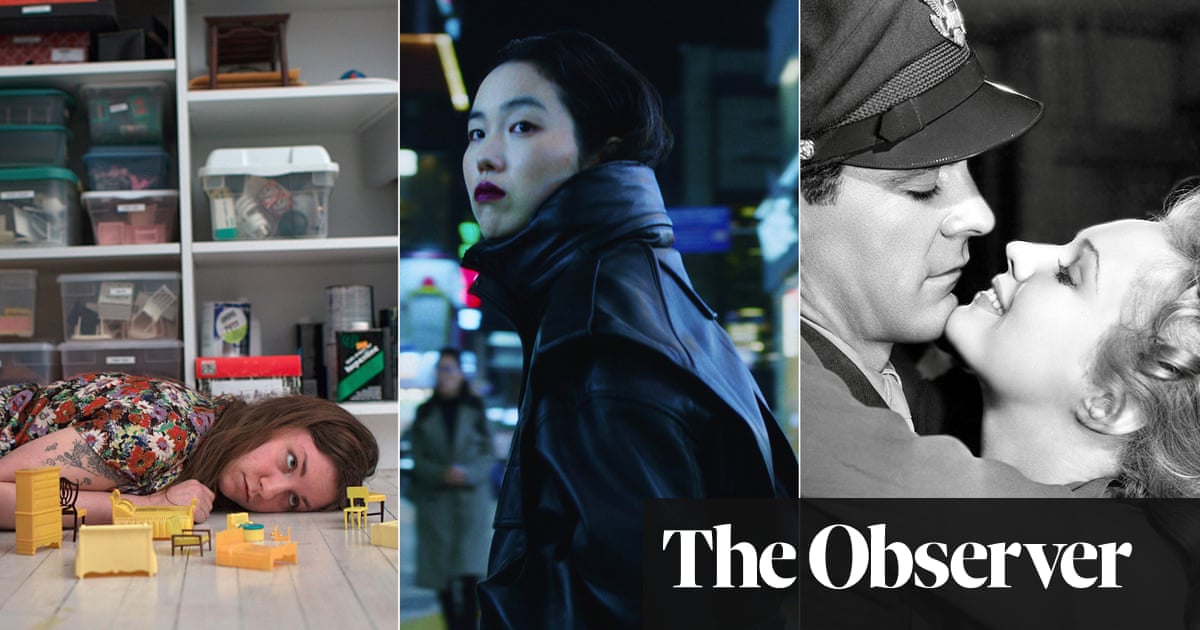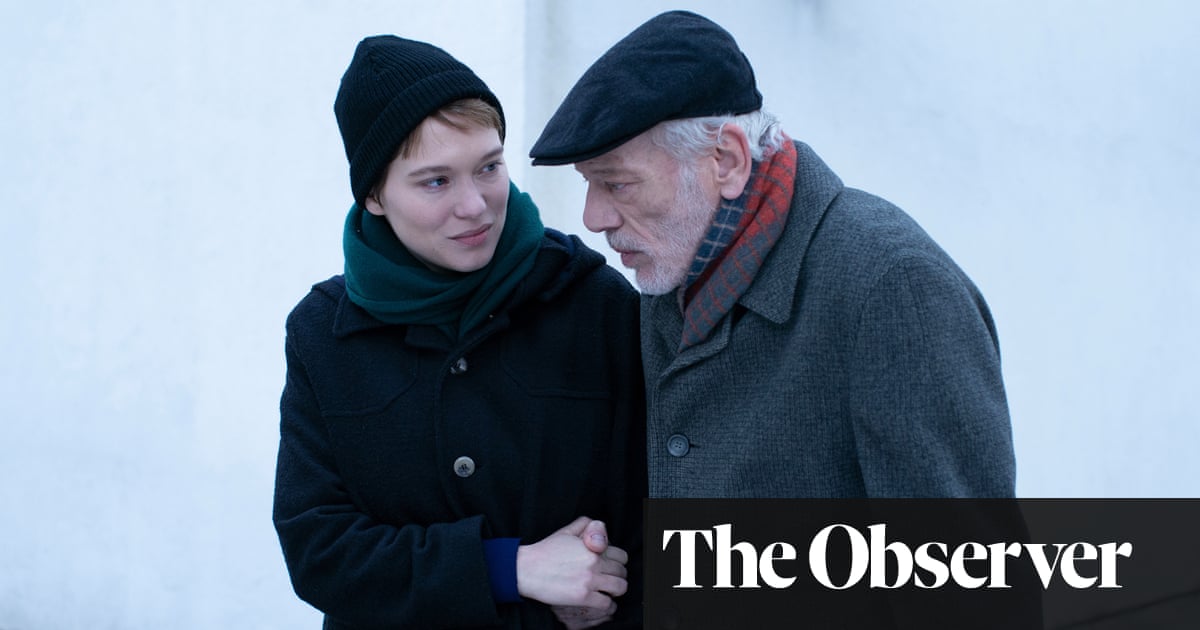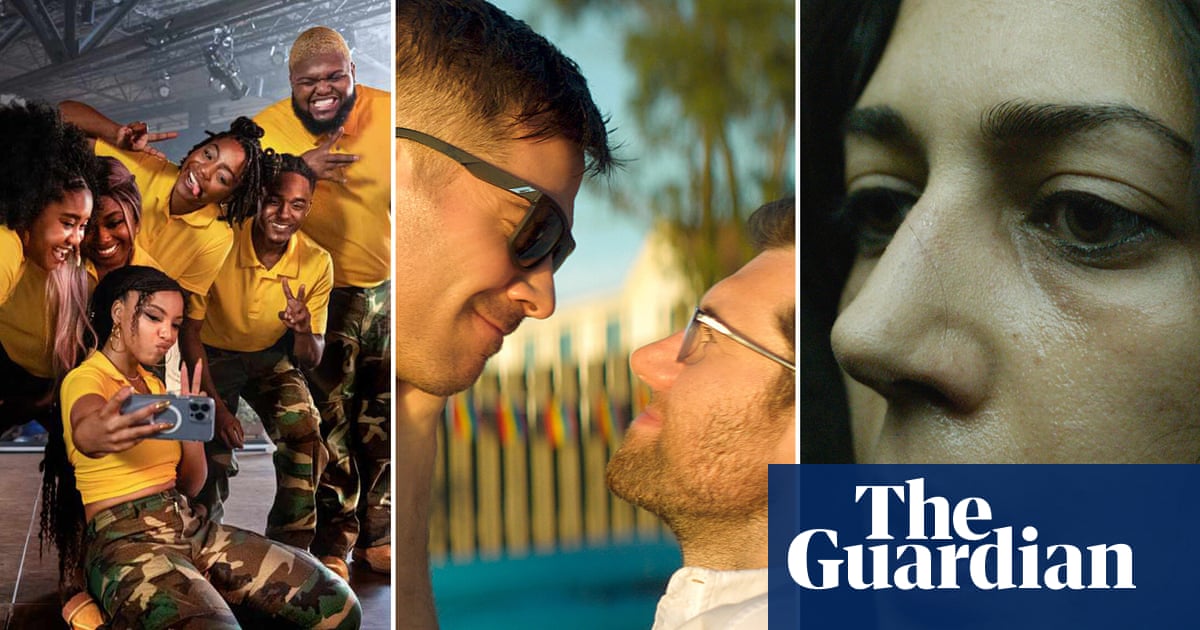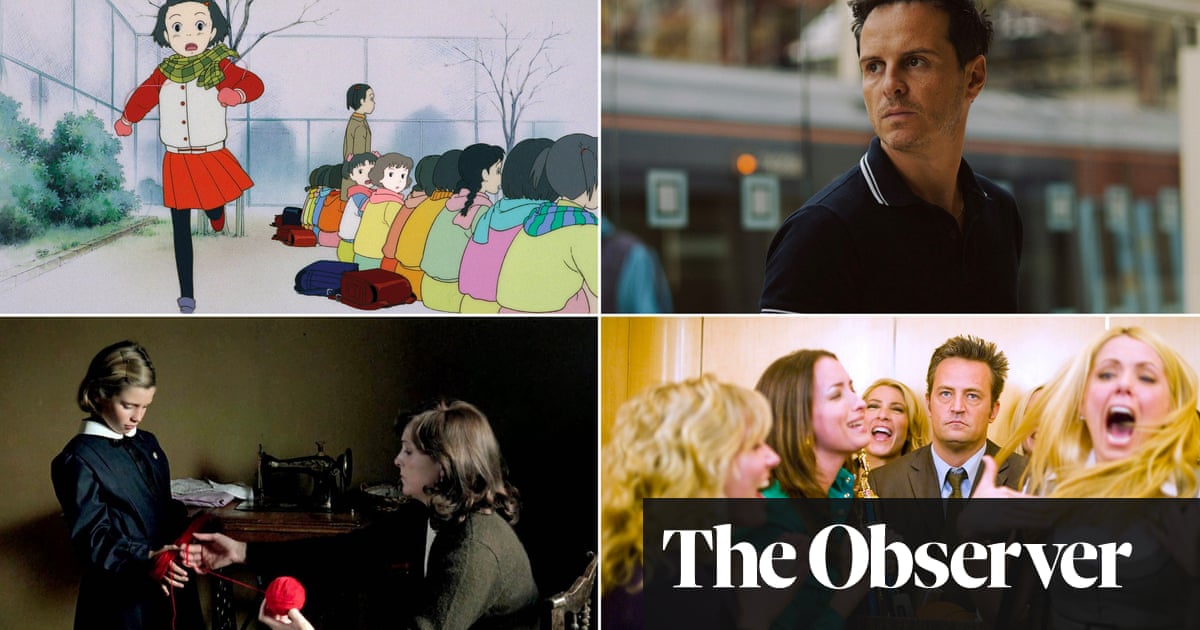
Earlier this year I visited my home city of Johannesburg after seven years away, to find – as I do every time I return – everything at once the same and entirely different: old houses and haunts nestled just as I left them, but surrounded by unfamiliar spikes of development and decay. “You can’t go home again” goes the old phrase, but we can and we do, the warmth of nostalgia constantly battling the shock of the new.
That tension is why homecoming is a such a recurrent, irresistible theme in the movies, though Davy Chou’s lovely, glimmering Return to Seoul (Mubi) offers a less common angle on that bittersweet pang. Its Gen-Z protagonist, Freddie (a wonderful Park Ji-min), is searching for any sense of her past in the South Korean capital, not trying to match it to memories she already has, for she left the place as an infant, having been adopted and raised in France. The film covers not one visit to her homeland, but a cyclical eight-year process in which the young woman, erratic and mercurial, works to map herself on to the city, finding a new self in her roots. It’s a perceptive and consistently surprising work – one to make anyone whose life has been scattered across different countries consider the lost-and-found patchwork of their own identity.
In most films on the subject, home is more of a well-worn constant, the fixed yardstick against which a prodigal son or daughter’s internal change is measured. Take Lena Dunham’s still-resonant, name-making debut feature Tiny Furniture (2012), which chronicles the increasingly prevalent phenomenon of the restless graduate forced to move back in with parents after having asserted a new identity at university. Her protagonist, Aura, is both child and woman, cramped by her return to a junior place in the household, but lashing out with newly formed ideas and urges.
Martin Q Blank, dark-suited hero of the cultish 90s comedy Grosse Pointe Blank, certainly goes back to his drab Michigan home town a very different person. Played by John Cusack, he’s now a dead-eyed, Californified contract killer. Anyone hoping that attending his high school reunion, and reacquainting himself with his former sweetheart (Minnie Driver), will cleanse his soul won’t be in the mood for the pleasingly nasty, grisly farce that ensues.
On balance, however, it all goes more cheerfully for Martin than it does for various homecoming thugs in the movies. In last year’s elegant, stately Italian mafia drama Nostalgia, a brooding wanderer (a fine Pierfrancesco Favino) returns to Naples after 40 years away, only to find the Camorra disinclined to forgive and forget. Likewise, Michael Caine’s vengeful London gangster returning up north on a bloody mission in Mike Hodges’s genre-minting 1971 classic Get Carter. Scores are settled, but you’d be hard pressed to say any lessons are learned.
Though who says returning home has to make you a better person? Not Mavis, the caustically awful writer at the centre of Jason Reitman’s Young Adult, played by a gleefully acidic Charlize Theron: with her life in tatters, she goes back to her home town in the hope of regaining her former queen-bee status, only to regain her questionable conviction that she was always too good for the place.
For the returning second world war veterans in William Wyler’s stirring heartbreaker The Best Years of Our Lives (Amazon Prime Video), the absence hasn’t been as long, but the ravages of PTSD make house and home feel all the more distant to them as they try to readjust. Made in the war’s immediate aftermath, the film isn’t the Rockwellian Americana you might expect. Its tough-minded denuding of cosy, no-place-like-home patriotism remains a bracing surprise – no less lacerating than the traumatised post-Vietnam reexamination of American community in Michael Cimino’s The Deer Hunter (on BBC iPlayer until 15 July) four decades later.
In Robert Altman’s jangly, offbeat Come Back to the Five and Dime, Jimmy Dean, Jimmy Dean (1982), meanwhile, small-town nostalgia is crumpled by more drastic changes of perspective and identity, as a reuniting James Dean fanclub is rocked by one of their group having transitioned gender. And in Christian Petzold’s dizzyingly layered postwar-set melodrama Phoenix (2014), a Holocaust survivor (the extraordinary Nina Hoss) returns to her husband in Berlin, only for her new, reconstructed face to make her a tourist on home turf, forced to play a version of herself once removed. Sometimes in this genre, home is a strange new world.
All titles are available to rent on multiple platforms unless otherwise specified.
Also new on streaming and DVD
Cairo Conspiracy
(Picturehouse)
Given a screenplay prize at Cannes last year, Tarik Saleh’s tense, jumpy political thriller is more interesting than its generic title (changed from the more intriguing Boy from Heaven). Following a young, working-class Egyptian lad (Tawfeek Barhom) as he’s granted a scholarship to Cairo’s Islam-oriented Al-Azhar University, only to be groomed as a government informant, it matches slick, Hollywood-style storytelling to knotty cultural specifics.
Scream VI
(Paramount)
Only a year ago, the fifth Scream film – confusingly just titled Scream – had enough energy and fresh star power to suggest the franchise still had a little life in it. With this hasty follow-up, regular numerical order has returned, but everything else is muddled and out of sorts: the location has shifted to New York City, but otherwise the effort to ironically check off every familiar trope from the series feels more frantic than fun.
Prisoner’s Daughter
(Amazon Prime Video)
Brian Cox deserves a better post-Succession victory lap than this earnestly well-meaning but somewhat beige father-daughter drama, in which he plays a dying convict given permission to see out his sentence in the home of his wary, long-estranged daughter (Kate Beckinsale). The actors work hard to give it some heart, but you know where it’s going, and it doesn’t get there fast enough.












